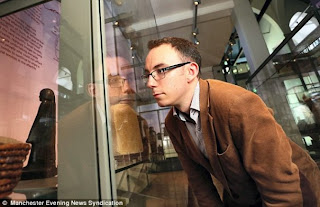Egypt's tourism minister has resigned in protest over the appointment as
Luxor governor of a member of a hardline Islamist group associated with terrorists who killed at least 58 tourists in 1997.
Hisham Zaazou, whose resignation has not yet been accepted by Egypt's prime minister, opposes the appointment on Sunday of Adel el-Khayat, a member of Gamaa Islamiya – a group whose associates carried out the massacre.
The
appointment of Khayat, who denies personal involvement in the attack,
has enraged not just Zaazou, but the tourism industry in Luxor, which
fears the symbolism of the appointment will put off potential visitors.
The
city is home to some of the country's most famous pharaonic ruins, and
derives most of its income from tourism. But tourism has already fallen
dramatically since Egypt's uprising in 2011, and locals fear any
reminder of the 1997 attacks will further deter tourists.
One of
17 governors appointed this week, Khayat was not the only appointee to
have been greeted with outrage. One new governor was allegedly forced to
go to work disguised in a niqab while another was hit by a shoe as
protesters in at least eight provinces demonstrated against President Mohamed Morsi's controversial inclusion of several Islamists among the new crop of state administrators.
Protesters are furious at Morsi's decision to increase the bureaucratic influence of the Muslim Brotherhood,
whose allies now control 11 of Egypt's 27 states. This comes at a time
when they feel he should be trying to reach out to non-Islamist sections
of society.
Egypt is more polarised than at any point since 2011. Recent polls suggest Morsi's popularity has halved since his election a year ago, while opposition activists claim to have secured 15 million signatures on a petition calling on him to resign.
"Each
day, more and more Egyptians are losing faith in the Brotherhood," said
Doaa Khalifa, a leading opposition activist in Mansoura, a northern
city where protesters padlocked state administrators inside their
offices on Tuesday, and where one local official alleged the new
Brotherhood governor had been forced to go to work hidden under a niqab.
"Before,
they gave them the benefit of the doubt," added Khalifa, the local
co-ordinator for the Tamarod campaign, the grassroots initiative that
claims to have gathered 15 million signatures calling for Morsi to go.
"Now, they think everyone who has a beard is a liar."
Fighting
broke out between activists and Brotherhood members in Tanta, Egypt's
fifth-largest city, where the new Brotherhood governor was attacked with
a shoe. Protesters later set fire to the Brotherhood's local headquarters.
Fury at Morsi has far deeper roots, however, than just his recent appointments. Living conditions have significantly worsened in recent months,
with food prices rising sharply, power cuts occurring on a daily basis,
and fuel scarce. In Mansoura on Tuesday petrol station queues stretched
for close to a mile.
"Morsi is ruining the country," said one
driver, Yasser Abdel Samir. "Look at this petrol queue. That's because
of him. There's no water; there's no electricity; salaries are low; food
prices are high. He's going down on the 30th," added Abdel Samir,
referring to planned protests against Morsi's regime on 30 June, the
first anniversary of his election.
Egypt is holding its breath for
the day, which many hope will lead to Morsi's exit; others, however,
fear it will inevitably lead to violence, should Morsi's still-sizeable
support base clash with his opponents.
Outwardly, Morsi's office
says it is relaxed about the planned demonstrations. "Provided they do
all this peacefully, that's a very healthy sign and a sign that the
revolution has actually worked," Khaled al-Qazzaz, a presidential aide,
said last week. "This is the best celebration for completing a year in
office for our first democratically elected president."
But the
day is being taken so seriously by those in power that the army has said
it will be deployed on the day, and Morsi publicly met Egypt's most
senior Muslim and Christian clerics on Tuesday in an apparent attempt to
establish social unity.
He has also tried to shore up his
standing among Salafists, an ultraconservative section of Egyptian
society whose support for his regime may be wavering. Morsi's
appointment of the new Luxor governor, his appearance at recent Islamist
rallies, and his severance of diplomatic ties with Syria may all be aimed at impressing the Salafists, some of whom see the war against the Syrian regime as a holy one.























































